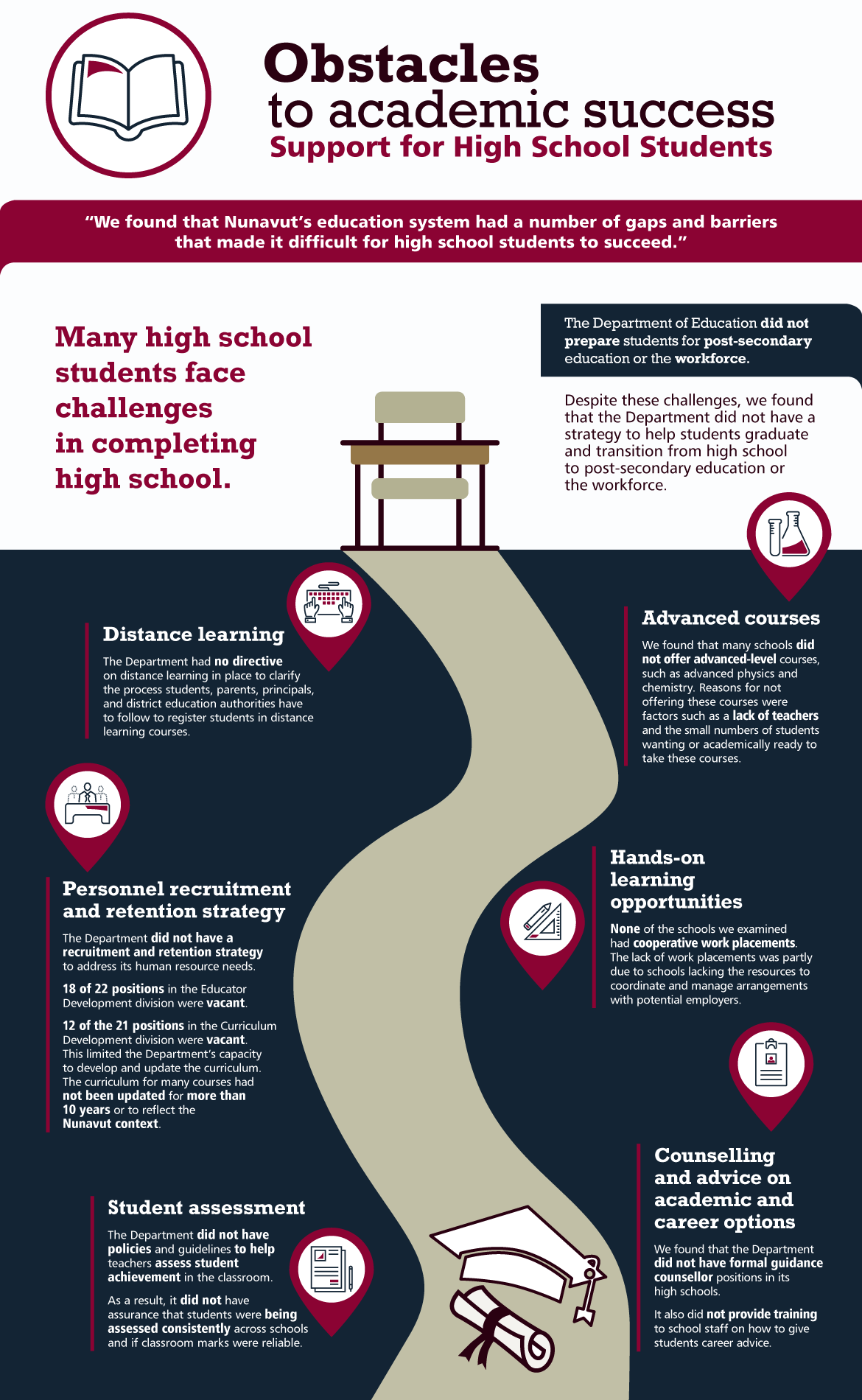Infographic: Obstacles to Academic Success—Support for High School Students

Text version
Obstacles to academic success—Support for High School Students
“We found that Nunavut’s education system had a number of gaps and barriers that made it difficult for high school students to succeed.”
Many high school students face challenges in completing high school.
The Department of Education did not prepare students for post-secondary education or the workforce.
Despite these challenges, we found that the Department did not have a strategy to help students graduate and transition from high school to post-secondary education or the workforce.
Distance learning
The Department had no directive on distance learning in place to clarify the process students, parents, principals, and district education authorities have to follow to register students in distance learning courses.
Advanced courses
We found that many schools did not offer advanced-level courses, such as advanced physics and chemistry. Reasons for not offering these courses were factors such as a lack of teachers and the small numbers of students wanting or academically ready to take these courses.
Personnel recruitment and retention strategy
The Department did not have a recruitment and retention strategy to address its human resource needs.
18 of 22 positions in the Educator Development division were vacant.
12 of the 21 positions in the Curriculum Development division were vacant. This limited the Department’s capacity to develop and update the curriculum. The curriculum for many courses had not been updated for more than 10 years or to reflect the Nunavut context.
Hands-on learning opportunities
None of the schools were examined had cooperative work placements. The lack of work placements was partly due to schools lacking the resources to coordinate and manage arrangements with potential employers.
Student assessment
The Department did not have policies and guidelines to help teachers assess student achievement in the classroom.
As a result, it did not have assurance that students were being assessed consistently across schools and if classroom marks were reliable.
Counselling and advice on academic and career options
We found that the Department did not have formal guidance counsellor positions in its high schools.
It also did not provide training to school staff on how to give students career advice.